Ireland’s economic fortunes are dependent on a unified EU with a strong economic engine. In this context, we should welcome the agreement reached between EU leaders on a new €1.85tn budget for 2021-2027. Failure to reach an agreement would have plunged the EU economy deeper into recession and severely tested solidarity across the union.
Never was there more of a need for the EU to show to its citizens the power of solidarity. Yes, it took almost five days of negotiations and the divide between member states on economic policies was exposed, but in the end, 27 member states developed and agreed a unified economic stimulus plan in response to COVID-19 far beyond what any individual member state could have achieved on its own.
In relation to where agriculture sits within the new deal, there are conflicting opinions. However, what is clear is that despite the European Commission ramping up the ask on farmers through the Farm to Fork and biodiversity strategies, commitment among EU leaders to maintain supports to farmers is in sharp decline.
As Barry Cassidy and Phelim O’Neill report, under the new deal, the CAP budget for 2021-2027 will see a cut of €47.5bn or 12.5% when compared to the previous seven years – with pillar 1 support cut by 12% and pillar 2 support cut by 19%.
At a national level, farm organisations have rejected the deal, accusing the EU of expecting farmers to do more for less. However, the notion that Ireland’s CAP envelope will be reduced is at odds with information provided to the Irish Farmers Journal by the Department of Agriculture.
According to the Department, under the new deal, Ireland’s national envelope for 2021-2027 will increase marginally to €10.73bn. This compares to €10.68bn for the previous seven years.
Ireland should be strategic in targeting initiatives that can ... deliver for farmers and meet EU objectives
As we report this week, Minister for Agriculture Dara Calleary has welcomed the deal, highlighting an overall increase for Ireland of €50m as a success. But in his comparison, the minister’s figure does not take into account the impact of inflation.
Such is the complexity of the budgetary process it will be a number of weeks before the deal can be fully assessed. However, regardless of the end figure, the reality is that the new CAP budget is in no way aligned to the EU’s ambition for the sector. It is therefore critical that if these ambitions are to be realised, that the sector can look beyond the CAP budget for support.
Within the deal agreed by leaders is a €750bn Next Generation EU Fund. At present, just 1% of this is allocated to agriculture through a €7.5bn rural development fund. By far the biggest share of the Next Generation EU Fund, with a budget of €672bn, is the Recovery and Resilience Facility which provides member states with a mix of grants and low-interest-rate loans.
A key element of the facility is to provide support measures that help member states in areas of environmental sustainability and to address the challenges posed by the green transition. Alongside this, the Just Transition Fund, with a budget of €10bn, states that the needs of agriculture should be prioritised when planning for investment under this fund.
At this stage in the process, it is important that all attention does not solely focus on the CAP budget. In the development of our national strategic plan, Ireland should be strategic in targeting a suite of initiatives that can access supports under the range of programmes contained within the Next Generation EU Fund as well as through the CAP budget.
Measures that reduce greenhouse gas emissions, improve energy efficiency and promote renewable energy would all appear closely aligned with the objectives of both the Recovery and Resilience Facility and the Just Transition Fund. Strategic investment in all three has the potential to deliver for farmers and meet EU objectives.
Meanwhile, the IFA has called on the Government to come forward with significant co-financing to protect payments. There is no doubt that co-financing and the Government’s commitment to it will be watched closely in the months ahead – particularly in relation to the commitment within the Programme for Government to €150m per annum over the next 10 years for a new REPS programme.
Currently, the level of co-financing by Government to CAP stands at €226m per annum. The question will be whether or not the €150m REPS commitment will be included within the co-financing figure into the future.
Farmers clearly expect REPS funding to be in addition to co-financing and will be watching closely to ensure the Government delivers.
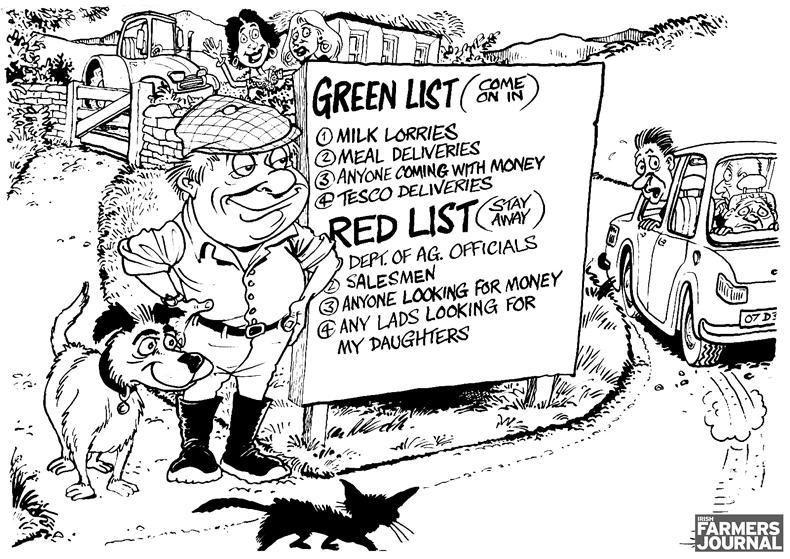
\Jim Cogan
Tillage: harvest hit by weather
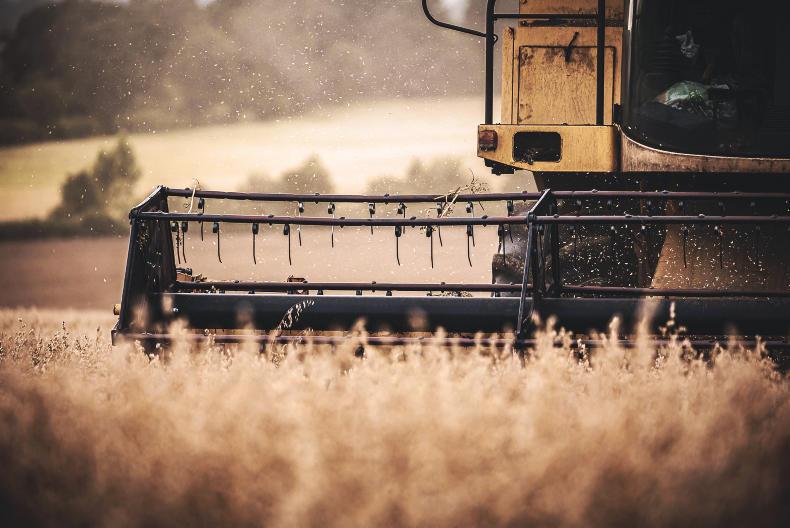
\ Philip Doyle
Harvest is once again in full swing as we move into the last week in July. Unlike other farming systems, tillage has a single day of reckoning for output and arguably the same for income. The inability to plant around half of our normal winter crop area last autumn cannot be undone until this autumn. Neither can the damage caused to crops over winter or the serious impact of the dryness in April and May be changed until a new crop is planted. These are inevitabilities for a farming system that is completely subject to the vagaries of the weather.
Harvest output will inevitably be hit by weather, but the overall prospect may be somewhat better than what had been thought six weeks ago. This is a time for solidarity in society and especially among farmers. The use of our native cereal products should be prioritised, as far as is possible, to help support our green image and our Irish brands. (See this week's From the Tramlines.)
With most farmers now cutting, and different crops being harvested, it is possible that broken weather may slow progress and add to pressures. This is not uncommon, but we implore all concerned to take due care in every task. Pressure and urgency to get work done increases the risk of accidents. Always think of safety for yourself and others – in the yard, in the fields and on the roads.
Dairy: farmer milk value eroded
We have seen the farmer’s share of the premium liquid milk market gradually eroded over the last 10 to 15 years.
It’s the very same result as has happened in the perceived high-value infant formula market where Irish milk processors supply base product. The farmers have lost control and the premium goes to those further up the retail chain.
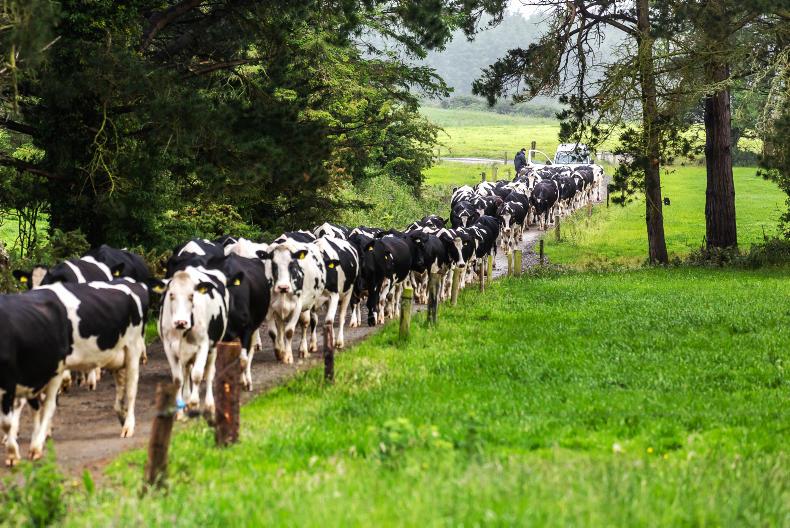
\ Philip Doyle
In the case of liquid milk, the high-quality product is sold as a loss leader, with no brand recognition in a space where sales are dominated by large multiples who offer annual contracts to keep processors on their toes.
Thankfully, June milk cheques have seen a rise allowing dairy farmers breathe a sigh of relief after the price warnings in February and March.
Well done to the co-ops for turning that around for June.
Animal health: leaving politics out of TB eradication
Elsewhere this week, Amy Forde reports that TB reactor numbers jumped 33% in the first half of 2020 – an increase of 2,350 reactors.
At 4%, the 12-month rolling average represents the highest level of TB in Ireland since 2012. It is a worrying trend that should help focus everyone’s mind in ongoing discussions around changes to the TB eradication scheme. Politics should be left at the door to allow for measures to be introduced that will help the sector win the battle against this disease while continuing to provide the necessary support to those affected.
Reader opinion: share your views on retirement scheme
This week we begin a three-part special series focused on what an early retirement scheme could like in the next CAP and examine the pros and cons of previous schemes.
As part of the series, we want to know what you think are the potential wins and the pitfalls of a retirement scheme. You can get in touch with your feedback and opinion by going to www.ifj.ie/farmretirement or by writing to us at Farm Retirement Series, Irish Farmers Journal, Irish Farm Centre, Bluebell, Dublin 12.
Ireland’s economic fortunes are dependent on a unified EU with a strong economic engine. In this context, we should welcome the agreement reached between EU leaders on a new €1.85tn budget for 2021-2027. Failure to reach an agreement would have plunged the EU economy deeper into recession and severely tested solidarity across the union.
Never was there more of a need for the EU to show to its citizens the power of solidarity. Yes, it took almost five days of negotiations and the divide between member states on economic policies was exposed, but in the end, 27 member states developed and agreed a unified economic stimulus plan in response to COVID-19 far beyond what any individual member state could have achieved on its own.
In relation to where agriculture sits within the new deal, there are conflicting opinions. However, what is clear is that despite the European Commission ramping up the ask on farmers through the Farm to Fork and biodiversity strategies, commitment among EU leaders to maintain supports to farmers is in sharp decline.
As Barry Cassidy and Phelim O’Neill report, under the new deal, the CAP budget for 2021-2027 will see a cut of €47.5bn or 12.5% when compared to the previous seven years – with pillar 1 support cut by 12% and pillar 2 support cut by 19%.
At a national level, farm organisations have rejected the deal, accusing the EU of expecting farmers to do more for less. However, the notion that Ireland’s CAP envelope will be reduced is at odds with information provided to the Irish Farmers Journal by the Department of Agriculture.
According to the Department, under the new deal, Ireland’s national envelope for 2021-2027 will increase marginally to €10.73bn. This compares to €10.68bn for the previous seven years.
Ireland should be strategic in targeting initiatives that can ... deliver for farmers and meet EU objectives
As we report this week, Minister for Agriculture Dara Calleary has welcomed the deal, highlighting an overall increase for Ireland of €50m as a success. But in his comparison, the minister’s figure does not take into account the impact of inflation.
Such is the complexity of the budgetary process it will be a number of weeks before the deal can be fully assessed. However, regardless of the end figure, the reality is that the new CAP budget is in no way aligned to the EU’s ambition for the sector. It is therefore critical that if these ambitions are to be realised, that the sector can look beyond the CAP budget for support.
Within the deal agreed by leaders is a €750bn Next Generation EU Fund. At present, just 1% of this is allocated to agriculture through a €7.5bn rural development fund. By far the biggest share of the Next Generation EU Fund, with a budget of €672bn, is the Recovery and Resilience Facility which provides member states with a mix of grants and low-interest-rate loans.
A key element of the facility is to provide support measures that help member states in areas of environmental sustainability and to address the challenges posed by the green transition. Alongside this, the Just Transition Fund, with a budget of €10bn, states that the needs of agriculture should be prioritised when planning for investment under this fund.
At this stage in the process, it is important that all attention does not solely focus on the CAP budget. In the development of our national strategic plan, Ireland should be strategic in targeting a suite of initiatives that can access supports under the range of programmes contained within the Next Generation EU Fund as well as through the CAP budget.
Measures that reduce greenhouse gas emissions, improve energy efficiency and promote renewable energy would all appear closely aligned with the objectives of both the Recovery and Resilience Facility and the Just Transition Fund. Strategic investment in all three has the potential to deliver for farmers and meet EU objectives.
Meanwhile, the IFA has called on the Government to come forward with significant co-financing to protect payments. There is no doubt that co-financing and the Government’s commitment to it will be watched closely in the months ahead – particularly in relation to the commitment within the Programme for Government to €150m per annum over the next 10 years for a new REPS programme.
Currently, the level of co-financing by Government to CAP stands at €226m per annum. The question will be whether or not the €150m REPS commitment will be included within the co-financing figure into the future.
Farmers clearly expect REPS funding to be in addition to co-financing and will be watching closely to ensure the Government delivers.

\Jim Cogan
Tillage: harvest hit by weather

\ Philip Doyle
Harvest is once again in full swing as we move into the last week in July. Unlike other farming systems, tillage has a single day of reckoning for output and arguably the same for income. The inability to plant around half of our normal winter crop area last autumn cannot be undone until this autumn. Neither can the damage caused to crops over winter or the serious impact of the dryness in April and May be changed until a new crop is planted. These are inevitabilities for a farming system that is completely subject to the vagaries of the weather.
Harvest output will inevitably be hit by weather, but the overall prospect may be somewhat better than what had been thought six weeks ago. This is a time for solidarity in society and especially among farmers. The use of our native cereal products should be prioritised, as far as is possible, to help support our green image and our Irish brands. (See this week's From the Tramlines.)
With most farmers now cutting, and different crops being harvested, it is possible that broken weather may slow progress and add to pressures. This is not uncommon, but we implore all concerned to take due care in every task. Pressure and urgency to get work done increases the risk of accidents. Always think of safety for yourself and others – in the yard, in the fields and on the roads.
Dairy: farmer milk value eroded
We have seen the farmer’s share of the premium liquid milk market gradually eroded over the last 10 to 15 years.
It’s the very same result as has happened in the perceived high-value infant formula market where Irish milk processors supply base product. The farmers have lost control and the premium goes to those further up the retail chain.

\ Philip Doyle
In the case of liquid milk, the high-quality product is sold as a loss leader, with no brand recognition in a space where sales are dominated by large multiples who offer annual contracts to keep processors on their toes.
Thankfully, June milk cheques have seen a rise allowing dairy farmers breathe a sigh of relief after the price warnings in February and March.
Well done to the co-ops for turning that around for June.
Animal health: leaving politics out of TB eradication
Elsewhere this week, Amy Forde reports that TB reactor numbers jumped 33% in the first half of 2020 – an increase of 2,350 reactors.
At 4%, the 12-month rolling average represents the highest level of TB in Ireland since 2012. It is a worrying trend that should help focus everyone’s mind in ongoing discussions around changes to the TB eradication scheme. Politics should be left at the door to allow for measures to be introduced that will help the sector win the battle against this disease while continuing to provide the necessary support to those affected.
Reader opinion: share your views on retirement scheme
This week we begin a three-part special series focused on what an early retirement scheme could like in the next CAP and examine the pros and cons of previous schemes.
As part of the series, we want to know what you think are the potential wins and the pitfalls of a retirement scheme. You can get in touch with your feedback and opinion by going to www.ifj.ie/farmretirement or by writing to us at Farm Retirement Series, Irish Farmers Journal, Irish Farm Centre, Bluebell, Dublin 12.






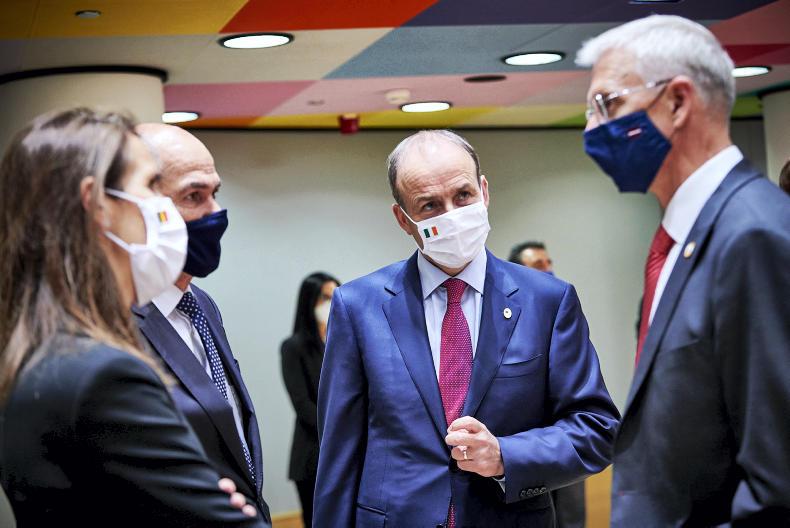

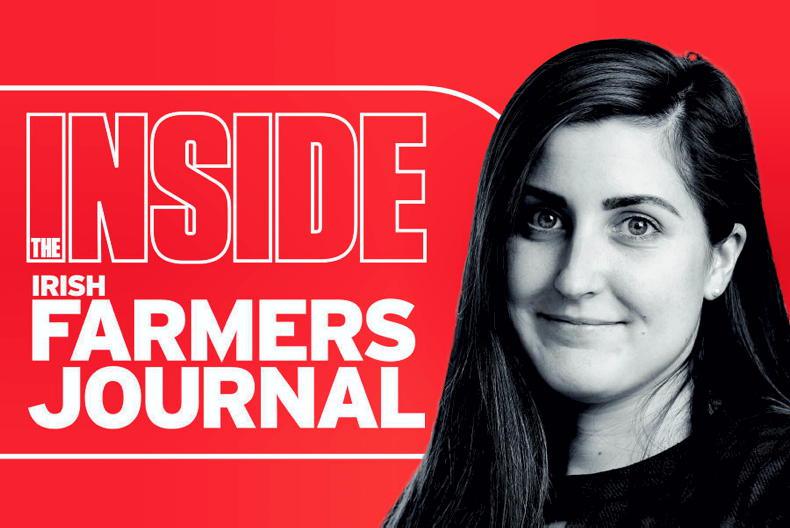

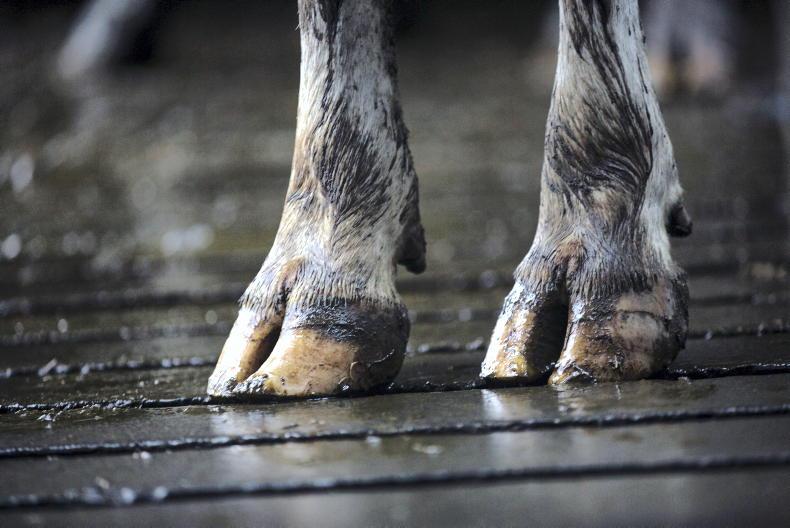
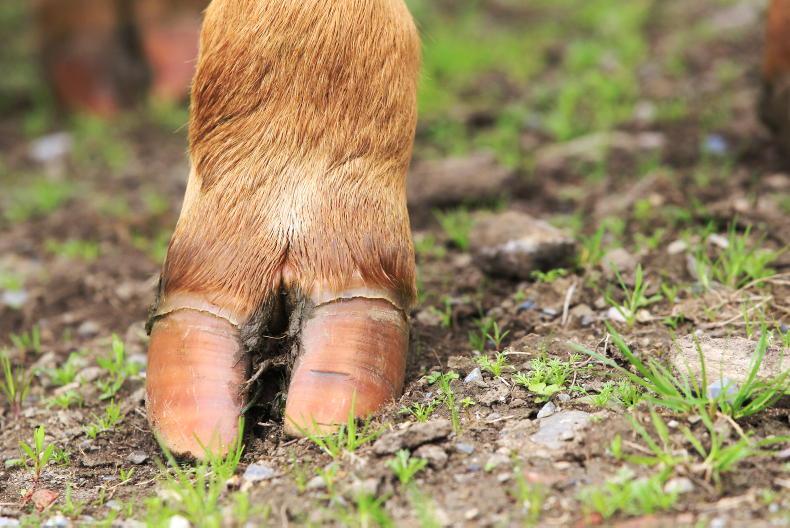
SHARING OPTIONS